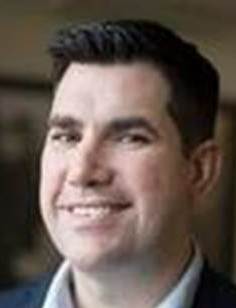|
Dear friends, Payday has been campaigning for many years against war and occupation, including by supporting women and men who refuse to serve in the military. Although we are non-party political, we support the peace pledge announced by Labour Party deputy candidate Richard Burgon (see below) whereby “the party would not endorse, or back, or support military action, unless the members gave it their explicit approval – apart from when there’s UN approval for it, or there’s a genuine national emergency”. We hope you will also support him. Refusing to Kill is Not a Crime! Invest in Caring, not Killing! PAYDAY THE GUARDIAN Labour Party deputy leadership Richard Burgon hits out at 'frustrated Churchills' among Labour's MPs Deputy leadership candidate unveils ‘peace pledge’ and criticises colleagues who voted for military action Heather Stewart | Wed 5 Feb 2020
Richard Burgon has accused Labour MPs who supported military intervention in Syria of “strutting about like frustrated Churchills”, as he called for Labour members to be given a vote before the party backs future military action. Launching what he called a “peace pledge”, the deputy leadership candidate said Labour’s grassroots members knew as much about foreign affairs as many of its MPs. “I think the public would be shocked if they knew how ignorant many of the MPs are about the matters they are voting on, when it comes to other countries,” he said. “There are MPs who have voted for military action, including Labour MPs, who until they heard the speech on that proposal that day wouldn’t be able to say where that country was on the map, wouldn’t know what the capital city of that country was, wouldn’t know anything about the culture at all. “Yet they strut about making these grandiose speeches like frustrated Churchills. And I think it’s deeply embarrassing.” The Syria vote in December 2015 exposed deep divisions within Labour, with Hilary Benn, then the shadow foreign secretary, giving a speech making the humanitarian case for intervention, while his leader opposed it. Burgon, the shadow justice secretary, remains staunchly loyal to Jeremy Corbyn, the outgoing leader. He is keen to stress that Labour must not abandon the “anti-war internationalism” he says is one of the three pillars of Corbynism, alongside party democracy and nationalisation – and has run through Labour history since its first parliamentary leader, Keir Hardie. “One of the most welcome things that Jeremy Corbyn has done as leader of the party in the last few years, he’s moved us away from a position where we’re supporting illegal wars like the war in Iraq, where we’re supporting military interventions like those in Libya. And I think we can’t lose that anti-war internationalism,” he said. He recalled telephoning his political hero, Tony Benn – Hilary Benn’s father – in the run-up to the Iraq war protest. “I’ll never forget: I phoned him to take his view on the rush to war in Iraq. I suppose it was the [old-fashioned] version of tweeting a politician for their opinion. I remember him saying that his opinion was that if Blair supported Bush’s war in Iraq, then it amounted to a de facto resignation from the Labour party: because the Labour party didn’t support it,” Burgon said. Under his peace pledge, he explained, “the party would not endorse, or back, or support military action, unless the members gave it their explicit approval – apart from when there’s UN approval for it, or there’s a genuine national emergency”. He conceded that a Labour prime minister would have the prerogative to sanction military action without the party’s support, but suggested there would be “political consequences”. Burgon said it was the “worst day” of his five years in parliament when the House of Commons voted to support David Cameron’s request for British forces to join bombing raids in Syria. In particular, he highlighted the fact that MPs clapped. “The whole nature of the applause was so degrading to our democracy, degrading to ourselves – and sick, in a way,” he said. Burgon said he had passed the Strangers’ Bar as he left parliament that night, and “MPs went straight there from voting to bomb another country, and you could hear people, pissed up in the bar, shouting and laughing. This cognitive dissonance I find quite disturbing.” Burgon is trailing way behind the shadow education secretary, Angela Rayner, in terms of nominations from constituency Labour parties, but he has won the support of the powerful Unite trade union. He is backing Rebecca Long-Bailey to be the party’s next leader, though she is supporting Rayner. He warned against the risk of “throwing the baby out with the bathwater” after Labour’s heavy loss in December’s election, saying some members of the party wanted to return to “business as usual”. “I think there is a fear that many members have, that because we were defeated, and defeated so badly, that people might panic, and just reach out for whatever is most conventionally electable,” he said. Asked about how he sees the role of deputy – a post vacated by Tom Watson, who had repeated run-ins with Corbyn – Burgon said he admired Tony Blair’s deputy, John Prescott. “The role is campaigner-in-chief,” he said. “I was very much struck when I joined the party in the mid-1990s with the role that Prescott played, in going round the country with his pledge card – I think we could have done with a pledge card at the general election, to boil some of those fantastic policies down.” Long-Bailey sought to underscore her environmental credentials on Wednesday by saying she would not support a third runway at Heathrow. Labour’s manifesto left the controversial issue open, saying the plan would have to pass stringent tests on air pollution. But the shadow business secretary said, “Any expansion needs to meet those tests, and Heathrow certainly didn’t.” Asked if it should go ahead, she said, “no,” promising to “push against” it if she becomes leader.
|
